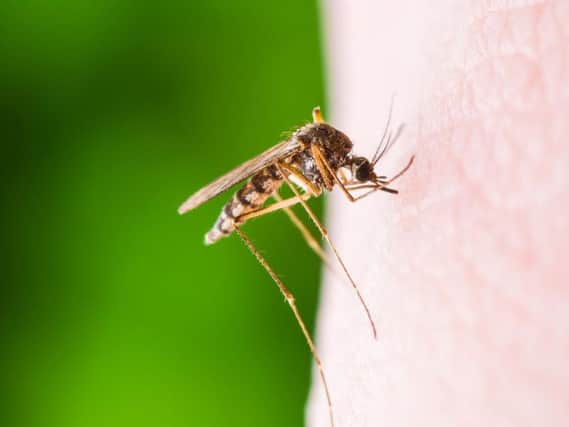Malaria ‘could be wiped out by 2050’ according to new research


More than 500,000 people lose their lives to the condition every year; however, scientists believe wiping out the mosquito-borne parasite could be within reach – provided funding and political challenges are met.
The Lancet Commission research – authored by 41 malariologists, biomedical scientists, economists and health policy experts – found global incidences of malaria has dropped by 36 per cent since 2000.
Advertisement
Hide AdAdvertisement
Hide AdIt also found fatalities had fallen by 60 per cent in the last three years, but that progress had stalled in the last three years.
Investment by governments and donors to tackle the disease have also plateaued, peaking at £3.5 billion in 2016.
The report’s authors are now calling for a package of tools, policy initiatives and funding to try and stamp out the disease.
Sir Richard Feacham, co-chair of the Lancet’s commission on malaria eradication, said: “For too long, malaria eradication has been a distant dream, but now we have evidence that malaria can and should be eradicated by 2050.”
“To achieve this common vision, we simply cannot continue with a business as usual approach.”
Sir Richard added: “The world is at a tipping-point, and we must instead challenge ourselves with ambitious targets and commit to the bold action needed to meet them.”
While more than half of the world’s countries are now free from malaria, the study found there has been a rise in cases in 55 countries across Africa, Asia and Latin America.
The research found that the large majority of new cases were recorded in 29, mostly African countries, with Nigeria and the Democratic Republic of Congo accounting for 36 per cent of global reports.
Advertisement
Hide AdAdvertisement
Hide AdThe commission wants to see the development of new tools, vaccines and drugs to fight the disease, as well as a funding boost of £1.6 billion to put the plan into action.
They argue that by wiping out malaria it would overcome the problem of “relentless evolution” of drug resistance and insecticide resistance by mosquitoes.
The social and economic benefits to countries where malaria is common would exceed the cost, the report said.
Dr Winnie Mpanju-Shumbusho, co-chair of the commission, said: “Despite unprecedented progress, malaria continues to strip communities around the world of their potential.”
“This is particularly true in Africa, where just five countries account for nearly half the global burden.
“Malaria eradication is a public health imperative of our generation.”